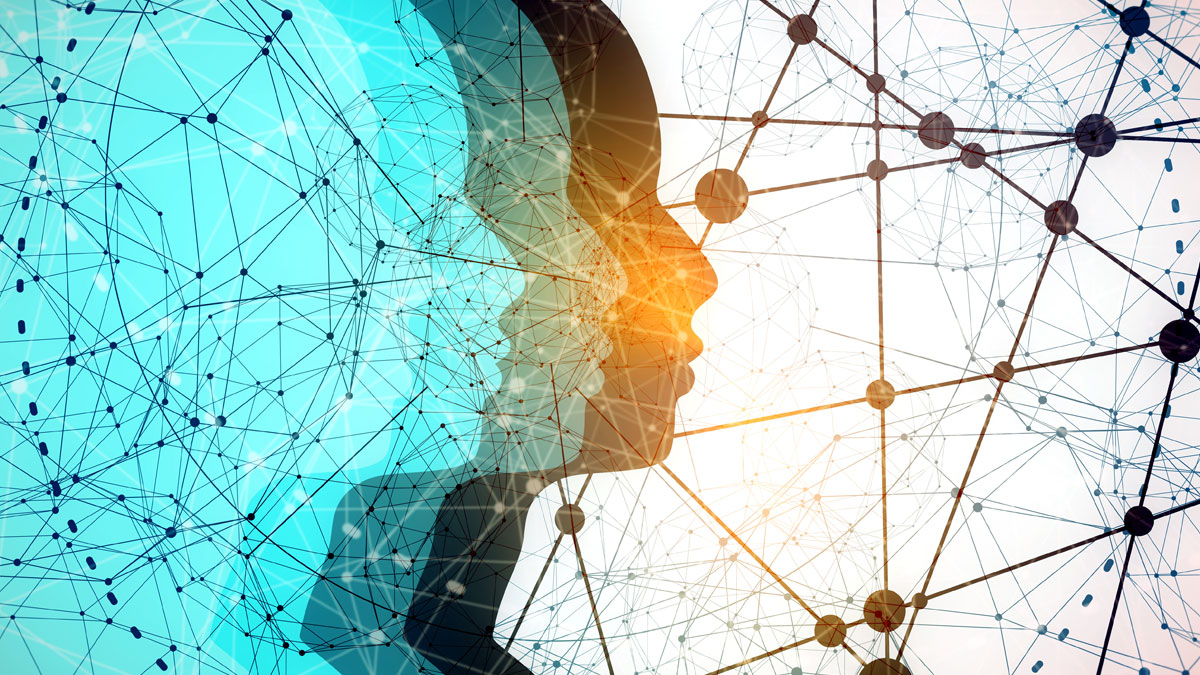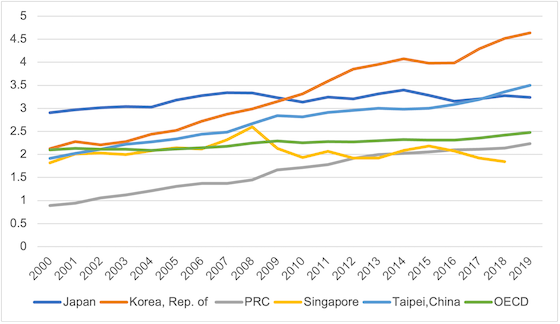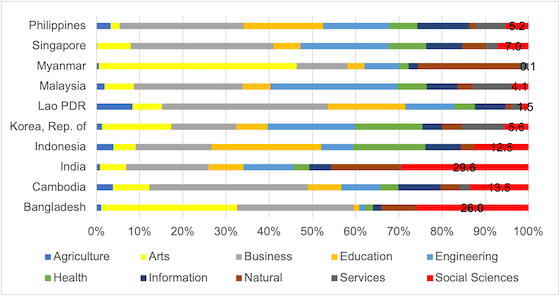
Many governments around the world found themselves ill-prepared to respond to the massive social and economic disruptions caused by the coronavirus disease (COVID-19) pandemic over the past 2 years. From Asia to Europe to the Americas, governments scrambled to support major health interventions while implementing a myriad of tools, ranging from information campaigns, social distancing regulations, travel bans, and full-scale jurisdictional lockdowns to massive bailouts and income transfers. These social, economic, legal, and political interventions were bound to have wide-ranging impacts on governments, workers, migrants, businesses, students, researchers, and other segments of the population, not least women, children, the elderly, and the disabled. Designing, implementing, evaluating, and recalibrating these interventions, however, requires significant and direct access to knowledge.
Efforts to understand the causes and impacts of these events have demonstrated the importance of mobilizing social science across a broad spectrum of disciplines and building bridges between academic silos to inform public policy debates and decisions.
Developed versus developing Asia
Governments in advanced and developing parts of Asia are increasingly investing more in research and development (R&D) (Figure 1). Many advanced Asian economies—notably the People’s Republic of China, the Republic of Korea, and Taipei,China—are reaping the benefits of their R&D investments, which are above the Organisation for Economic Co-operation and Development average. These investments have brought the knowledge needed to deal with the pandemic, develop vaccines, and draw up plans that have produced well-recognized results worldwide.
Figure 1: R&D Spending, 2000–2019 (% of gross domestic product)
 OECD = Organisation for Economic Co-operation and Development, PRC = People’s Republic of China.
OECD = Organisation for Economic Co-operation and Development, PRC = People’s Republic of China.
Source: OECD. Gross Domestic Spending on R&D (accessed 4 March 2022).
At the same time, many developing Asian countries have had to fend for themselves, with limited financial and human resources within their local social research communities and minimal connections to policy circles. Data on the pool of talent from domestic graduates illuminate this story (Figure 2). Social science graduates form an abysmal 0.1% of the pool in Myanmar and only 1.5% in the Lao People’s Democratic Republic (Lao PDR), compared to almost one-third in Bangladesh and India. So, it should not be surprising that the role of social science researchers and scholars as an effective, problem-solving cavalry appears under pressure across countries at a time when public trust is decreasing in institutions and expertise, with concomitant rises in social inequalities, rapid digitalization, and social-political polarization.
Figure 2: Graduates from Tertiary Education in Selected Asian Countries by Field, 2017–2019 (% of total)
 Source: World Bank.
Source: World Bank.
Major structural factors in need of change
In Asia, research support needs to bring about important structural change.
More equal knowledge. Not enough attention has been paid to where and by whom pandemic-related research or knowledge is produced, communicated, and used. Many of the large international development donors have funded, analyzed, and disseminated studies and surveys, such as the Asian Development Bank (ADB) on the impact of the pandemic on households and enterprises in the Association of Southeast Asian Nations (ASEAN) and in Central Asia Regional Economic Cooperation countries, which already show markedly different results across developing Asia. This is particularly urgent for ASEAN, where research systems are expected to address significantly larger development challenges with fewer resources than their East Asian counterparts, and where the functioning and structure of research systems is not extensively documented. More importantly, little is known about the pre-pandemic status of those national research systems with few exceptions, for example Indonesia, Cambodia, and Myanmar, and how they are affected by the current crisis.
A systems-approach beyond individuals, institutions, or specific projects. The pandemic is changing the way research is produced, disseminated, and used, including challenges to mainstream definitions of academic excellence and quality in research across South–North lines, Southern leadership in research, and the role of evidence-informed policy. While the pandemic has given unprecedented visibility to the role of science in public policy and decision making, much attention has focused on the capacity to produce research to answer very specific questions by specific actors. Other aspects that need to be considered are the impacts of the COVID-19 pandemic on research funding and quality control processes, the demand for research from policy actors and for job markets for researchers, the visibility of research and its workings on mass media, and public trust in social research.
Innovation for research-to-policy. The pandemic has called into question the capacity of national research systems to generate useful and actionable medical, technical, social, and human evidence. The pandemic has thrown science and knowledge onto the public and digital stage, along with questions around validity, methodologies, timeliness, and the link between research, public policy, decision making, and action. The understanding that research is a distinct but closely connected system to the domain of policy and practice has never been stronger or more strongly challenged by civil society, media, and the public at large. There is a growing debate and body of knowledge that seeks to understand these connections and show how they might be strengthened.
Examples for a more equitable, systematic, and innovative approach
A UN (2020) report reminds us of existing science strategies, such as the “science of science” approach, which learns how research that aims to be more open and impactful is funded, practiced, and evaluated within a given system. This is an example of what we are seeing emerge as a systemic approach to knowledge. Like-minded institutions, such as the Global Development Network (GDN), INASP, and the International Development Research Centre (IDRC), have started examining their own strategies to build a systematic vision, as opposed to a simple project-based approach for social research on COVID-19. The work of the Science Granting Councils Initiative in sub-Saharan Africa and the Doing Research global initiative in Asia is indicative of this capacity and interest in establishing a global observatory on Southern social science research and knowledge systems in ways that multiply the visibility and connection between existing efforts to generate evidence on these questions. Also, the IDRC and Swiss Peace have focused on the fragile developing contexts of Afghanistan and the Lao PDR, where there is no or very limited capacity of states, systems, and communities to respond to COVID-19 and adopt an ecosystem approach––beyond specific projects––to consider all actors involved in the research-to-policy process. The Asia Research Centre at Universitas Indonesia, together with the GDN and IDRC, recently published an overview of the role social scientists have played in COVID-19 responses in 11 countries in Southeast Asia.
Looking ahead to recovery
Knowledge equity, systematic approaches, and new knowledge translation should inform how we harness the power of science for a post-COVID-19 recovery. They are also important to the processes of democratic scrutiny and debate, although this aspect has proven weak in developing Asia, in particular in ASEAN. In Asia, political pressures add urgency and pragmatism to the pandemic. There is an opportunity that should not be wasted to place research system strengthening, including in the social sciences, higher on the agenda of national and international actors.
References
Azhgaliyeva, D., R. Mishra, T. Long, and P. Morgan. 2022. Impacts of COVID-19 on Households in CAREC Countries. ADBI Working Paper 1298. Tokyo: ADBI.
Gewin, V. The Career Cost of COVID-19 to Female Researchers, and How Science Should Respond. 2020. Nature 583(7818): 867–869.
Global Development Network. Doing Research Global Initiative (accessed 3 March 2022).
Global Development Network. Social Science and COVID-19 (accessed 3 March 2022).
INASP 30 Years of INASP (accessed 3 March 2022).
International Development Research Centre (IDRC) Science Granting Councils Initiative in Sub-Saharan Africa. IDRC. (accessed 3 March 2022).
International Network for Government Science Advice. 2021. Build Back Better: Knowledge, Policy and Publics in Dialogue. Viewpoints – Think Piece Compendium from 2021 INGSA Conference.
Morgan, P. J. and L. Q. Trinh. 2021. Impacts of COVID-19 on Households in ASEAN Countries and Their Implications for Human Capital Development. ADBI Working Paper 1226. Tokyo: ADBI.
OnThinkTanks. 2020. Doing Research: Social Science Research Systems, Southern Think Tanks and COVID-19 (Parallel Session, OnThinkTanks 2020 Conference), 24 June.
Oo, Z., Z. X. Lee, J. R. Glutting, N. L. Htet, N. W. Win, N. C. Aung, and T. Z. C. Oo. 2020. Doing Research in Myanmar – Country Report. Yangon, Myanmar: Centre for Economic and Social Development and the Global Development Network.
Pou, S., S. Sok, C. Work, A. Beban, K. Nauen, and T. Khoun. 2016. Doing Research in Cambodia: Make Models That Build Capacity. Phnom Penh: Cambodian Institute for Cooperation and Peace.
Rakhmani, I., Z. Sakhiyya, A. S. Ramadhan, and W. Agahari. 2020. Doing Research In Indonesia. New Delhi and Jakarta: Centre for Innovation Policy and Governance and the Global Development Network.
Swisspeace. Strengthening Knowledge Ecosystems for Safe and Inclusive Development in Fragile Contexts (accessed 3 March 2022).
United Nations. 2020. UN Research Roadmap for the COVID-19 Recovery. New York: United Nations.








Comments are closed.